1,7-DIMETHYLURIC ACID
Synonym(s):1,7-Dimethyl-2,6,8-trihydroxypurine
- CAS NO.:33868-03-0
- Empirical Formula: C7H8N4O3
- Molecular Weight: 196.16
- MDL number: MFCD00005713
- EINECS: 251-706-2
- SAFETY DATA SHEET (SDS)
- Update Date: 2023-05-18 11:31:08
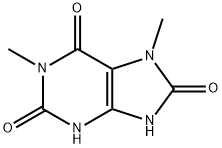
What is 1,7-DIMETHYLURIC ACID?
Description
1,7-Dimethyluric acid is a metabolite of caffeine produced by the action of xanthine oxidase on paraxanthine. It can be detected in urine as a biomarker of caffeine consumption.
Chemical properties
Off-White Solid
The Uses of 1,7-DIMETHYLURIC ACID
1,7-Dimethyluric acid is the suitable reagent used for the simultaneous determination of plasma levels of theophylline and its metabolites without interference from caffeine or caffeine metabolites by HPLC.
The Uses of 1,7-DIMETHYLURIC ACID
A metabolite of Caffeine
What are the applications of Application
1,7-Dimethyluric Acid is a metabolite of caffeine
Definition
ChEBI: An oxopurine that is 7,9-dihydro-1H-purine-2,6,8(3H)-trione substituted by methyl groups at N-1 and N-7. It is a metabolite of caffeine and is often found in human urine samples.
General Description
1,7-Dimethyluric acid is an important metabolite of caffeine. Electrochemical oxidation of 1,7-dimethyluric acid was studied over a wide pH range of 2.2-10.3 at solid electrodes.
Properties of 1,7-DIMETHYLURIC ACID
| Melting point: | ≥300 °C |
| storage temp. | Refrigerator |
| solubility | DMSO (Slightly, Heated) |
| form | Solid |
| color | White to Pale Beige |
| BRN | 219682 |
Safety information for 1,7-DIMETHYLURIC ACID
Computed Descriptors for 1,7-DIMETHYLURIC ACID
New Products
(S)-3-Aminobutanenitrile hydrochloride 4-Methylphenylacetic acid N-Boc-D-alaninol N-BOC-D/L-ALANINOL Tert-butyl bis(2-chloroethyl)carbamate 3-Morpholino-1-(4-nitrophenyl)-5,6-dihydropyridin- 2(1H)-one Furan-2,5-Dicarboxylic Acid Tropic acid 1-Bromo-3,5-Di-Tert-Butylbenzene S-2-CHLORO PROPIONIC ACID ETHYL ISOCYANOACETATE 2-Bromo-1,3-Bis(Dimethylamino)Trimethinium Hexafluorophosphate 4-IODO BENZOIC ACID 3-NITRO-2-METHYL ANILINE 1-(2,4-DICHLOROPHENYL) ETHANAMINE (2-Hydroxyphenyl)acetonitrile 4-Bromopyrazole 2-(Cyanocyclohexyl)acetic acid 4-methoxy-3,5-dinitropyridine 1-(4-(aminomethyl)benzyl)urea hydrochloride 2-aminopropyl benzoate hydrochloride diethyl 2-(2-((tertbutoxycarbonyl)amino) ethyl)malonate tert-butyl 4- (ureidomethyl)benzylcarbamate Ethyl-2-chloro((4-methoxyphenyl)hydrazono)acetateRelated products of tetrahydrofuran
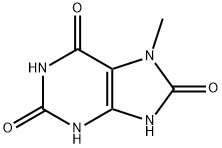

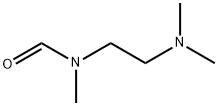
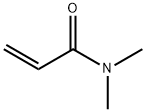
![[7-CD3]-1,3,7-Trimethyluric Acid](https://img.chemicalbook.in/CAS/GIF/188297-95-2.gif)
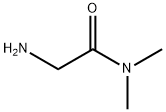
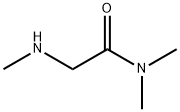

You may like
-
 1,7-Dimethyluric acid CAS 33868-03-0View Details
1,7-Dimethyluric acid CAS 33868-03-0View Details
33868-03-0 -
 2033-24-1 98%View Details
2033-24-1 98%View Details
2033-24-1 -
 1975-50-4 98%View Details
1975-50-4 98%View Details
1975-50-4 -
 2-HYDROXY BENZYL ALCOHOL 98%View Details
2-HYDROXY BENZYL ALCOHOL 98%View Details
90-01-7 -
 2-Chloro-1,3-Bis(Dimethylamino)Trimethinium Hexafluorophosphate 221615-75-4 98%View Details
2-Chloro-1,3-Bis(Dimethylamino)Trimethinium Hexafluorophosphate 221615-75-4 98%View Details
221615-75-4 -
 61397-56-6 CIS BROMO BENZOATE 98%View Details
61397-56-6 CIS BROMO BENZOATE 98%View Details
61397-56-6 -
 14714-50-2 (2-Hydroxyphenyl)acetonitrile 98+View Details
14714-50-2 (2-Hydroxyphenyl)acetonitrile 98+View Details
14714-50-2 -
 118753-70-1 98+View Details
118753-70-1 98+View Details
118753-70-1